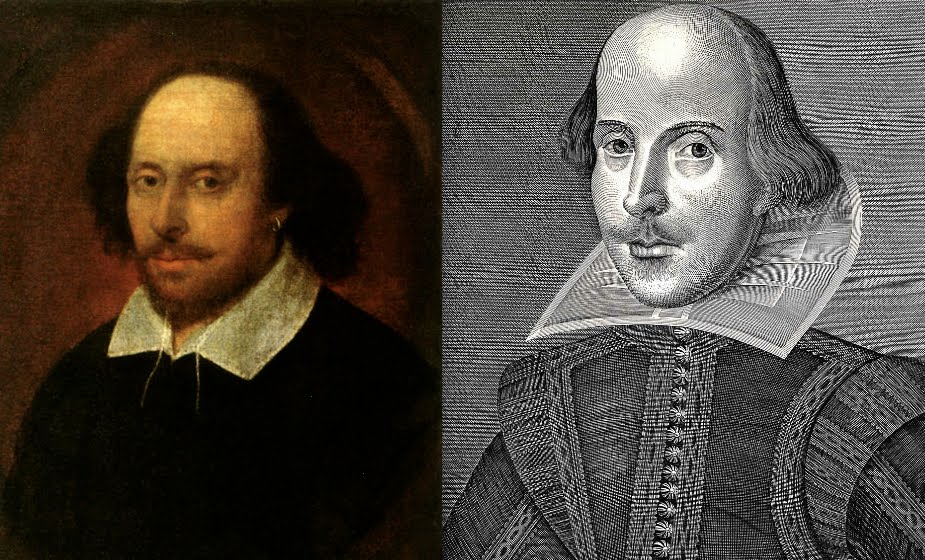Henry IV Part Two starts with a very intriguing, and for Shakespeare unique, prologue. The stage direction: Enter RUMOUR, painted full of tongues really says it all. This is an innovation more associated with classical, and especially Roman, theatre –a characterization of an abstract. Shakespeare has used prologues before (for example in Romeo and Juliet) and the technique will be further continued and reach its highest narrative effect in Henry V, but unlike in those plays, Rumour here makes only this one appearance, at the beginning of a play. As a theatre technique its novelty would certainly get the audience’s attention (as it does the reader), for the image is very striking, and it magnificently sets the stage for what is to come. What I particularly like, though, is that Shakespeare is clearly eager to experiment, and try new things, new ways of bringing his audience in. It’s an avantgarde device, in an otherwise narratively quite straightforward play, though –another typically shrewd Shakespeare stroke of commercial savvy – the play ends with what can only be described as a trailer –an unashamed plug for the next ”episode” –that of Henry V. This epilogue is sometimes spoken by the ”Rumour” character of the prologue, and that would seem to satisfy a desire for neatness (and economy) on the part of a director, but it is not made explicit in the text that these two speeches are given by the same character.
The play itself continues the story of Henry IV and the events leading up to his death and the accession of his son Hal to the throne, as Henry V. Like Part One, the story is both intimate and familial, with the scenes between father and son, being particularly brilliant, and sprawling on a fairly grand scale. Thus, there are family squabbles and battles, and though the play is generally darker than part one, there are numerous scenes and moments of comedy, naturally often involving Falstaff. Yet Falstaff’s comic trajectory takes a nose-dive in this play when he is rejected by the newly crowned king, and he is left a broken man. And because we have come to love this rogue, we cannot but feel a sense of sympathy with him in the final instance, even though we may equally understand the reasons the new king (Prince Hal) must shake off his ”former self” and steer away from those who have been so much a part of his youth. Or do we? Perhaps the new king is too harsh? I have always found his behaviour a little troubling, but Shakespeare is typically brilliant in creating this sometimes unsettling ambiguity in a character who would otherwise be too ”perfect” were he without flaws. I worked quite extensively on Henry/Hal’s character when I was at drama school, and always found this particular play to be the most intriguing of the three he appears in (four if you count his very brief appearance in Richard II).
Shakespeare also shows his theatrical savy by both giving us more of what we liked in Part One, and introducing enough new characters and plot moments to keep us on our toes. Some of the new characters here had actually been introduced in The Merry Wives of Windsor, so they would be quite familar already though in a different context. Justice Shallow, is perhaps my favourite, but we also get the explosive braggart Pistol, whose trajectory will continue through into Henry V. And who can forget the wonderfully named Doll Tearsheet!
Though I admit to liking Henry IV Part One somewhat more than the follow up, that is only a personal preference; both parts compliment each other and together they present a magnificent pageant of a particular time and atmosphere that is unmatched anywhere else in Shakespeare in breadth and development of myriad characters from low to high. And whereas Part One is for me a richer play, Part Two contains more individual scenes, speeches and ”moments” that astound, delight and inspire me upon re-reading it. Of the productions I have seen, I again rate the RSC’s version of the early 1990s as the best, but I have recently been quite pleased with at least large parts of the television version presented in The Hollow Crown, though, of course, I was sad about many of the cuts. I have recently acquired an earlier BBC version of both parts of Henry IV (the published version of which forms the photograph at the top of this entry), but as yet I have not had the opportunity to see it.
Favourite Line:
Falstaff
If I had a thousand sons, the first human principle I would teach them should be to forswear thin potations, and to addict themselves to sack.
(Act IV, Sc.3)
Character I would most like to play: Falstaff or Pistol

No comments:
Post a Comment